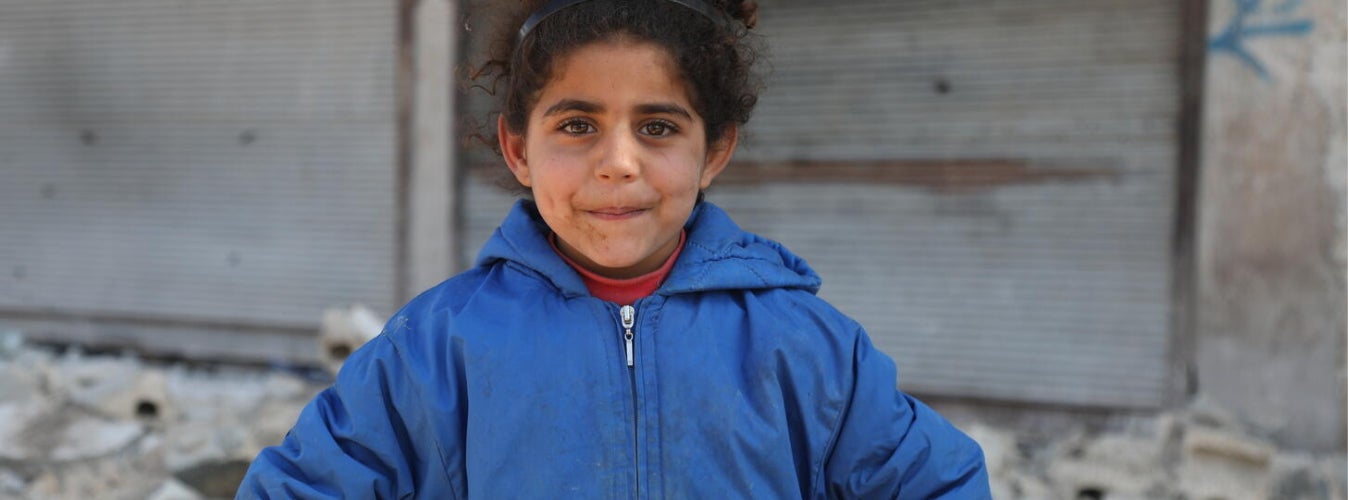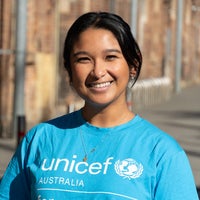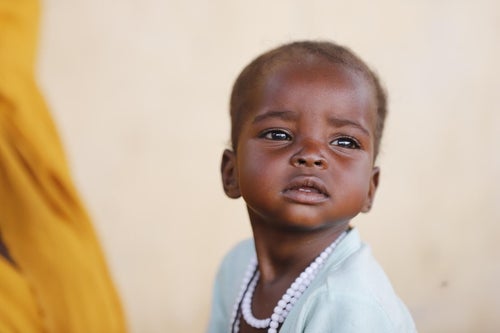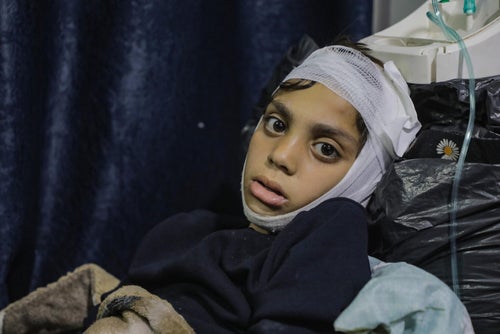On 6 February, the world watched as a series of deadly earthquakes hit Türkiye and Syria, destroying homes, separating children and families, and ending many innocent lives.
Nearly four months later, the situation remains dire. While the humanitarian response was swift and significant, the immediate futures of millions of children remain uncertain, with families doing all they can to rebuild their lives.
3.7 million children affected in Syria
2.5 million children affected in Türkiye
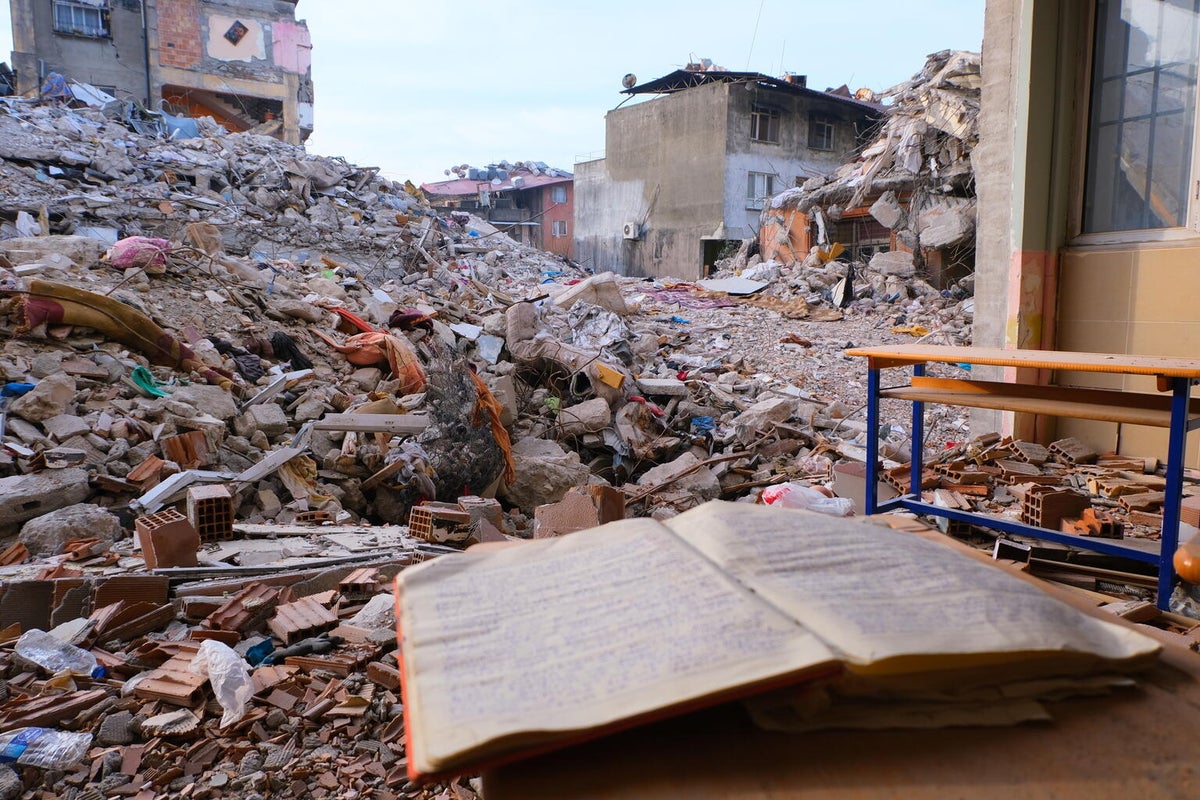
"Although the earthquakes may have faded from the headlines, it will take years to rebuild the damaged infrastructure and facilities, while the psychological impacts on children could continue beyond that"
Yet through the disaster, hope prevails, and we have seen the incredible determination and strength of children experiencing an event no one in their lifetime should.
Trusting a child’s instincts
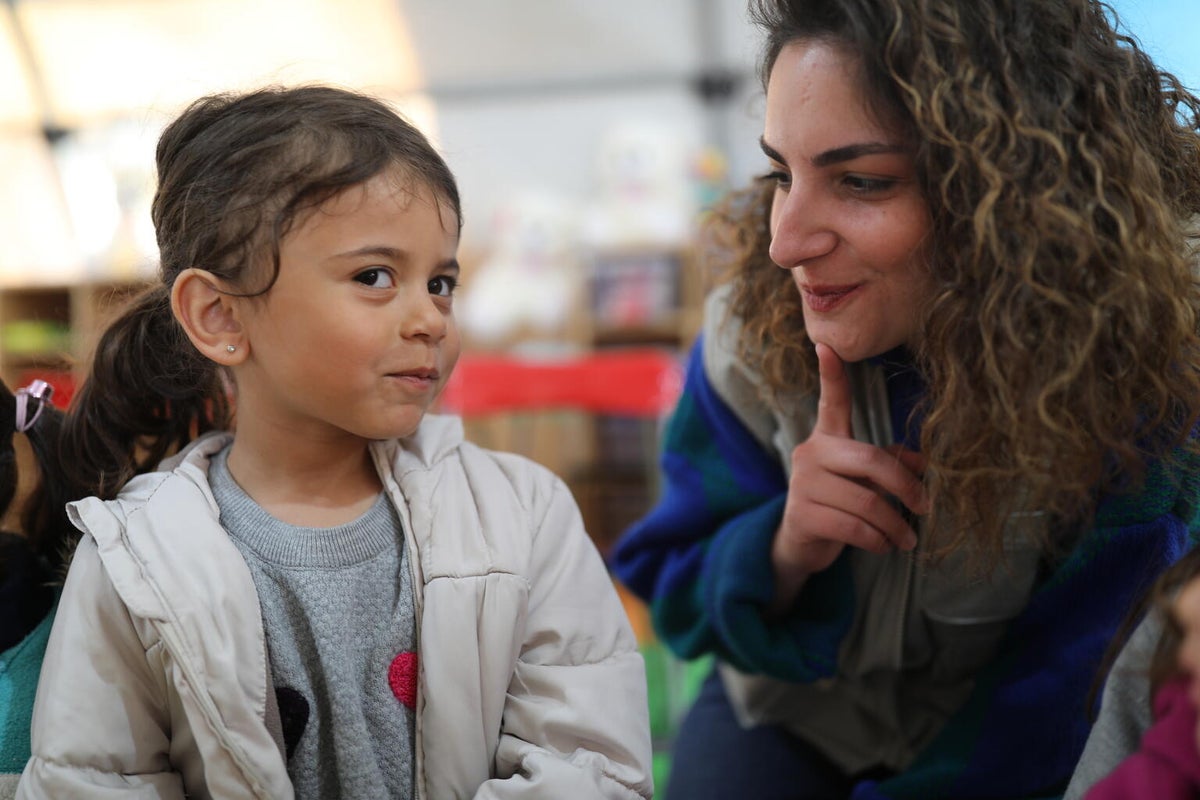
Five-year-old Elanur usually loves sleeping in her bed, but in the hours leading up to the earthquake, she decided to make a bed on the floor instead. When a massive earthquake struck Türkiye in the early hours of 6 February, the heavy wardrobe in Elanur’s bedroom toppled over, smashing her bed into pieces.
"It’s as if she knew. If she hadn’t prepared her bed like that, she wouldn’t be alive today. "
Zeynep brought her daughter, Elanur, to a temporary accommodation centre in southeast Türkiye immediately after the earthquake hit. Supported by UNICEF, the centre offers a safe space for children to be just children – a place where they can learn, play, and most importantly, heal. Interacting with other children helps build a much-needed sense of normalcy during emergencies.
“Elanur was so scared at first. She even didn’t want to go out,” Zeynep says. After a week at the centre, Elanur was much livelier and enjoyed activities time at the child friendly space. “This makes me happy. [Elanur] spends good times there and she comes back happy.”
Through its work with the government and partners, UNICEF has used temporary accommodation centres to provide essential support to thousands of children impacted by the earthquakes.
While Elanur will never forget what the family has gone through, Zeynep is blessed that her daughter has been a remarkable source of strength throughout the catastrophe. “Children feel everything. I’m sure she will recover from this, but she’ll always remember,” Zeynep says. “Yet, she was the one who was soothing me right after the earthquake, when I was shocked and crying. She was hugging me tight, whispering ‘it ended mom, it’s over.’”
Error resolving data for type appeal_program___starter_tiles
Naya’s story of hope
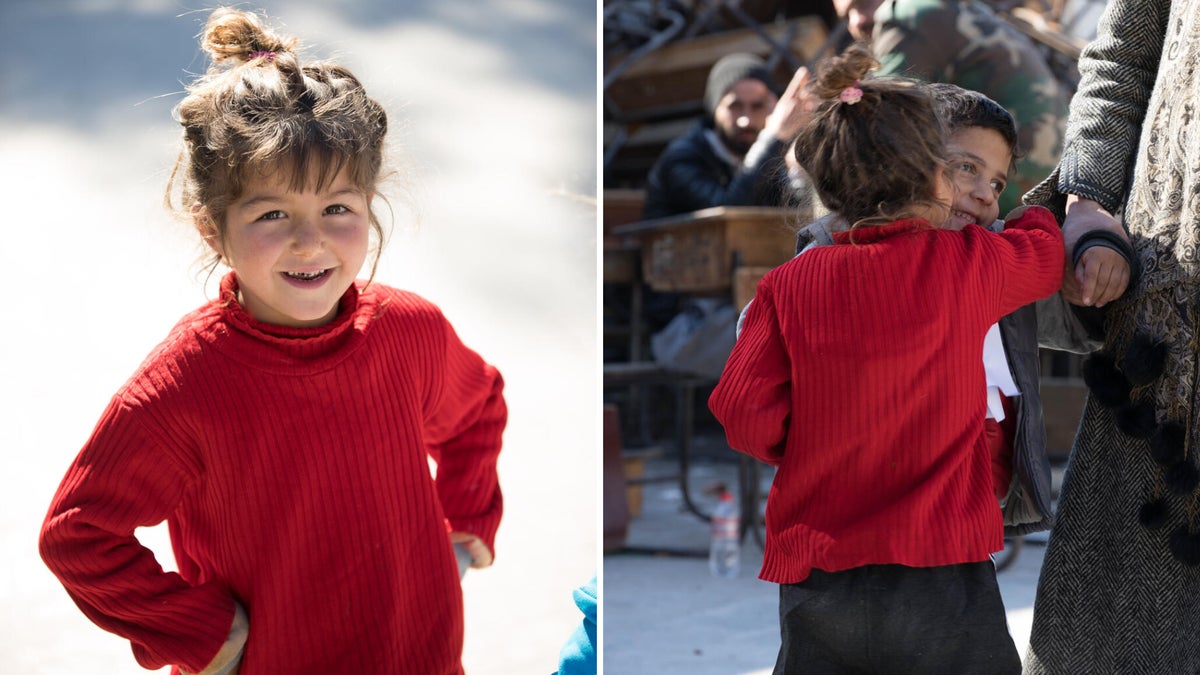
Children in Syria were already facing one of the world's most complex humanitarian situations: ongoing conflict, economic crisis, and mass displacement. The earthquakes have only made things worse, with 3.7 million Syrian children directly impacted.
Both Naya and Jabal's homes were affected by the devastating earthquake that rocked Syria in early February 2023. Despite the uncertainty, the bond between these two young children in their new homes in western Syria is a reminder of the resilience and strength that can appear in times of crisis.
"He is not my brother, but I love him so much. Don't ask me why, I just do!"
Naya, along with her mother and brother who has a mental disability, left their home when the earthquake that the region.
UNICEF is there for every child, even after the headlines fade
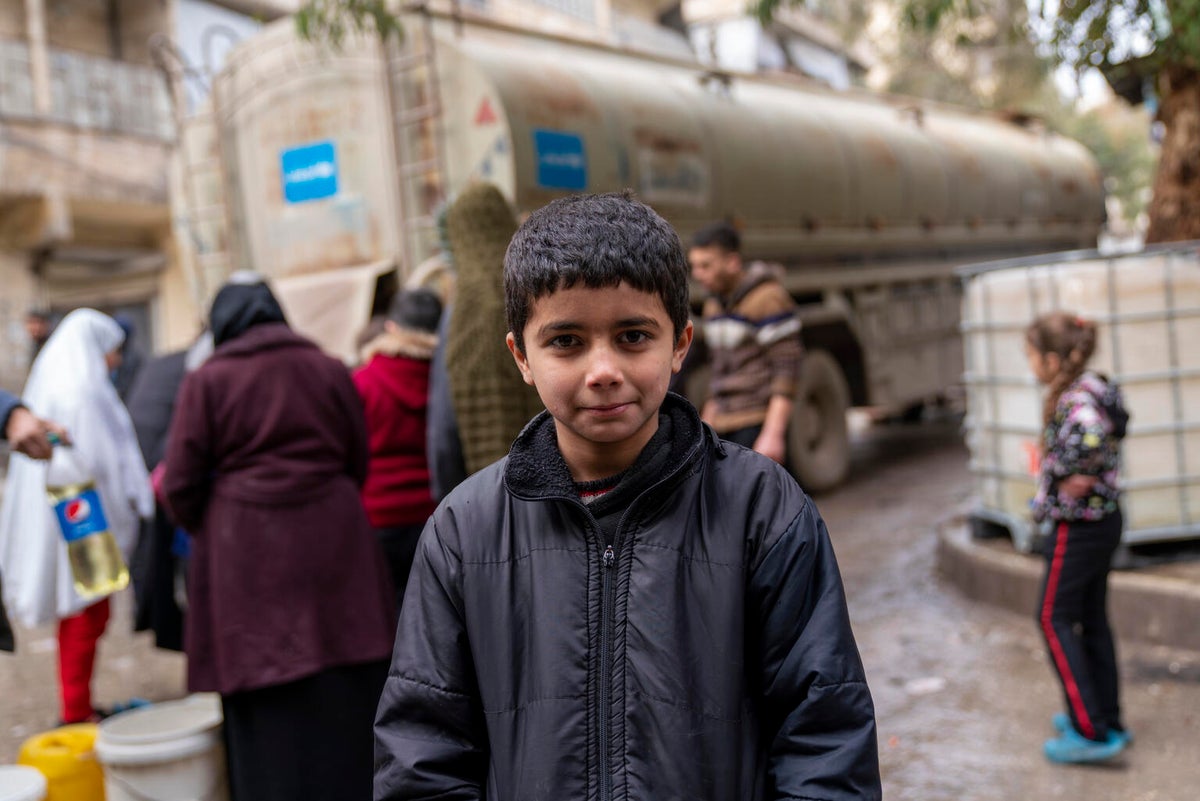
UNICEF is always there for children before, during and after an emergency hits. Since the earthquakes in Türkiye and Syria destroyed homes and devastated lives, UNICEF has worked tirelessly to provide support and help to those in need.
"In the short- to mid-term, UNICEF will work with partners to repair water and station points and rebuild schools to get children back into the classroom. In the longer-term, UNICEF will be there on the ground working with the communities to rebuild and restart programs affected by the earthquakes in a sustainable way."
UNICEF is working on the ground, alongside our partners, to provide essential assistance to children and families. Here’s what people like you have helped us achieve so far:
SYRIA
- Over 760,000 people now have access to clean and safe drinking water
- Around 470,113 people can now rely on appropriate sanitation services
- Primary healthcare in UNICEF-supported facilities has been made accessible to 188,846 children and women
- Approximately 140,286 children have been given the opportunity to receive formal or non-formal education, including early learning
- UNICEF has reached out to 269,931 children, adolescents, and caregivers, providing them with community-based mental health and psychosocial support
TURKIYE
- 234,220 children and caregivers have received vital mental health and psychosocial support and psychological first aid
- 332,587 children now have access to formal or non-formal education, including early learning, through UNICEF-supported programs
- Over 2.8 million liters of safe drinking water and over 3.4 million liters of water for sanitation purposes have been delivered, ensuring better hygiene for 654,689 households
- UNICEF has provided a second batch of 200,000 doses of measles, mumps, and rubella vaccine, totaling 400,000 doses, to cover 340,000 children affected by the earthquakes
"The generous contribution from UNICEF supporters, including in Australia, has helped us deliver clean drinking water to children and their families in the earthquake-affected areas. Psychosocial support has been provided to children to help them deal with the trauma from the earthquakes and the ongoing conflict. These contributions can be a lifeline to many families and children in the area."
But, there is still much more to be done for the children and families in Türkiye and Syria. With your support, we can be there to ensure no child is left behind.
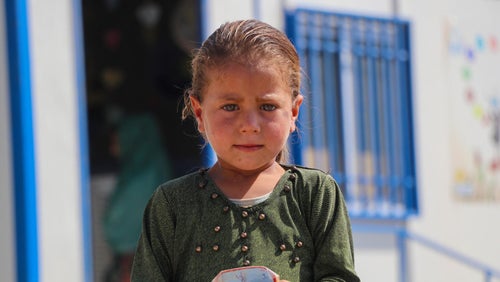
Syria & Türkiye Earthquake
UNICEF is on the ground, providing urgent assistance to families impacted by the devastating earthquake and 13 years of war.
Related articles
Stay up-to-date on UNICEF's work in Australia and around the world



